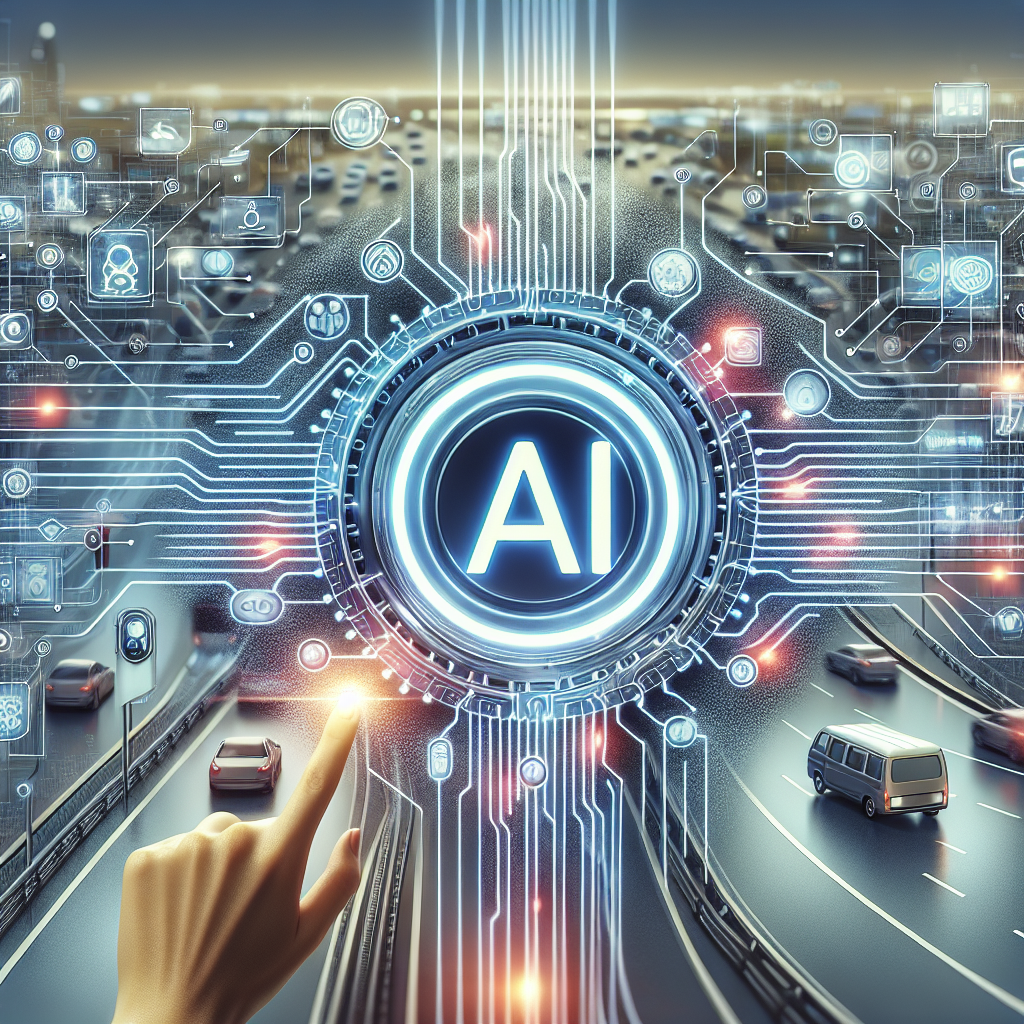Traffic management is a crucial aspect of urban planning and infrastructure development. With the increasing number of vehicles on the road and the growing population in cities around the world, traditional traffic management systems are struggling to keep up with the demands of modern transportation. However, with the advent of artificial intelligence (AI) platforms, there is a new hope for more efficient and effective traffic management.
AI platforms are revolutionizing the way traffic is managed in cities by providing real-time data analysis, predictive modeling, and automated decision-making capabilities. These platforms can collect data from various sources such as traffic cameras, sensors, GPS devices, and mobile phones to monitor traffic flow, detect congestion, and optimize traffic signals in real-time. By analyzing this data, AI platforms can predict traffic patterns, identify bottlenecks, and suggest optimal routes for vehicles to reduce congestion and improve overall traffic flow.
One of the key benefits of AI platforms in traffic management is their ability to adapt to changing conditions and make real-time adjustments to traffic signals and routing algorithms. Traditional traffic management systems rely on pre-programmed timing schedules that are often ineffective in responding to unexpected events such as accidents, road closures, or severe weather conditions. AI platforms, on the other hand, can analyze incoming data and adjust traffic signals and routing algorithms on the fly to minimize disruptions and keep traffic moving smoothly.
Another advantage of AI platforms in traffic management is their ability to optimize traffic flow based on real-time data analysis. By using machine learning algorithms, AI platforms can learn from past traffic patterns and make predictions about future traffic conditions. This allows them to proactively adjust traffic signals, reroute vehicles, and optimize traffic flow to prevent congestion before it occurs. This proactive approach to traffic management can help reduce travel times, fuel consumption, and emissions, while improving overall road safety and driver satisfaction.
In addition to real-time traffic management, AI platforms can also provide valuable insights for long-term urban planning and infrastructure development. By analyzing historical traffic data, AI platforms can identify trends, patterns, and hotspots of congestion that can inform future road construction, transit planning, and traffic management strategies. This data-driven approach to urban planning can help cities make more informed decisions about where to invest resources and prioritize projects to improve overall traffic flow and reduce congestion in the long term.
Despite the many benefits of AI platforms in traffic management, there are also some challenges and concerns that need to be addressed. One of the main challenges is the integration of AI platforms with existing traffic management systems and infrastructure. Many cities around the world still rely on outdated and fragmented traffic management systems that may not be compatible with new AI technologies. This can make it difficult to implement AI platforms effectively and maximize their potential benefits for traffic management.
Another concern is the potential for privacy and data security issues with the use of AI platforms in traffic management. Collecting and analyzing large amounts of data from various sources can raise concerns about the privacy of individuals and the security of sensitive information. Cities and transportation agencies must ensure that proper safeguards are in place to protect the privacy of citizens and secure the data collected by AI platforms to prevent unauthorized access or misuse.
Despite these challenges and concerns, the potential impact of AI platforms on traffic management is significant. By leveraging the power of AI technologies, cities can improve the efficiency, effectiveness, and sustainability of their traffic management systems to better meet the needs of a growing population and a rapidly evolving transportation landscape. With the right planning, investment, and collaboration, AI platforms have the potential to transform the way we manage traffic in cities and create a more efficient and sustainable urban transportation system for the future.
FAQs:
Q: How do AI platforms improve traffic management?
A: AI platforms improve traffic management by providing real-time data analysis, predictive modeling, and automated decision-making capabilities. These platforms can collect data from various sources to monitor traffic flow, detect congestion, and optimize traffic signals in real-time. By analyzing this data, AI platforms can predict traffic patterns, identify bottlenecks, and suggest optimal routes for vehicles to reduce congestion and improve overall traffic flow.
Q: What are the benefits of using AI platforms in traffic management?
A: Some of the key benefits of using AI platforms in traffic management include improved traffic flow, reduced congestion, shorter travel times, lower fuel consumption, reduced emissions, and improved road safety. AI platforms can adapt to changing conditions, make real-time adjustments to traffic signals, proactively adjust traffic flow, and provide valuable insights for long-term urban planning and infrastructure development.
Q: What are the challenges of implementing AI platforms in traffic management?
A: Some of the main challenges of implementing AI platforms in traffic management include the integration with existing traffic management systems, compatibility with outdated infrastructure, privacy and data security concerns, and the need for proper planning, investment, and collaboration. Cities and transportation agencies must address these challenges to effectively implement AI platforms and maximize their potential benefits for traffic management.
In conclusion, AI platforms have the potential to revolutionize traffic management in cities by providing real-time data analysis, predictive modeling, and automated decision-making capabilities. By leveraging the power of AI technologies, cities can improve the efficiency, effectiveness, and sustainability of their traffic management systems to better meet the needs of a growing population and a rapidly evolving transportation landscape. With the right planning, investment, and collaboration, AI platforms have the potential to transform the way we manage traffic in cities and create a more efficient and sustainable urban transportation system for the future.

